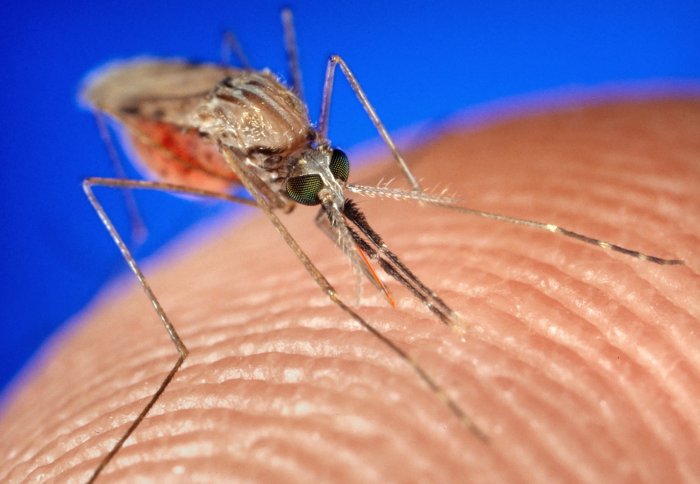

Scientists have modified mosquitoes to produce sperm that will only create males, pioneering a fresh approach to eradicating malaria.
In a study published in the journal Nature Communications, scientists from Imperial College London have tested a new genetic method that distorts the sex ratio of Anopheles gambiae mosquitoes, the main transmitters of the malaria parasite, so that the female mosquitoes that bite and pass the disease to humans are no longer produced.
In the first laboratory tests, the method created a fully fertile mosquito strain that produced 95 per cent male offspring.
What is most promising about our results is that they are self-sustaining. Once modified mosquitoes are introduced, males will start to produce mainly sons, and their sons will do the same, so essentially the mosquitoes carry out the work for us
– Dr Nikolai Windbichler
Department of Life Sciences
The scientists introduced the genetically modified mosquitoes to five caged wild-type mosquito populations. In four of the five cages, this eliminated the entire population within six generations, because of the lack of females. The hope is that if this could be replicated in the wild, this would ultimately cause the malaria-carrying mosquito population to crash.
This is the first time that scientists have been able to manipulate the sex ratios of mosquito populations. The researchers believe the work paves the way for a pioneering approach to controlling malaria.
Since 2000, increased prevention and control measures have reduced global malaria mortality rates by 42 per cent, but the disease remains a prevalent killer especially in vulnerable sub-Saharan African regions. Malaria control has also been threatened by the spread of insecticide resistant mosquitoes and malaria parasites resistant to drugs. According to latest estimates by the World Health Organisation, over 3.4 billion people are at risk from contracting malaria and an estimated 627,000 people die each year from the disease.
Lead researcher Professor Andrea Crisanti from the Department of Life Sciences at Imperial College London said: “Malaria is debilitating and often fatal and we need to find new ways of tackling it. We think our innovative approach is a huge step forward. For the very first time, we have been able to inhibit the production of female offspring in the laboratory and this provides a new means to eliminate the disease.”
Dr Nikolai Windbichler, also a lead researcher from the Department of Life Sciences at Imperial College London, said: “What is most promising about our results is that they are self-sustaining. Once modified mosquitoes are introduced, males will start to produce mainly sons, and their sons will do the same, so essentially the mosquitoes carry out the work for us.”
In this new experiment the scientists inserted a DNA cutting enzyme called I-PpoI into Anopheles gambiae mosquitoes. In normal reproduction, half of the sperm bear the X chromosome and will produce female offspring, and the other half bear the Y chromosome and produce male offspring.
The enzyme that the researchers used works by cutting the DNA of the X chromosome during production of sperm, so that almost no functioning sperm carry the female X chromosome. As a result the offspring of the genetically modified mosquitoes was almost exclusively male.
It took the researchers six years to produce an effective variant of the enzyme.
“The research is still in its early days, but I am really hopeful that this new approach could ultimately lead to a cheap and effective way to eliminate malaria from entire regions. Our goal is to enable people to live freely without the threat of this deadly disease”, concluded Dr Roberto Galizi from the Department of Life Sciences at Imperial College London.
The study is funded by a grant from the Foundation for the National Institutes of Health, through the Vector-Based Control of Transmission: Discovery Research (VCTR) program of the Grand Challenges in Global Health initiative of the Bill & Melinda Gates Foundation, and the European Research Council.
REFERENCE: Galizi, R. et al. 2014. ‘A synthetic sex ratio distortion system for the control of the human malaria mosquito’. Nature Communications, 10 June 2014.
Supporters

Article text (excluding photos or graphics) © Imperial College London.
Photos and graphics subject to third party copyright used with permission or © Imperial College London.
Reporter
Gail Wilson
Communications and Public Affairs

Contact details
Email: press.office@imperial.ac.uk
Show all stories by this author
Leave a comment
Your comment may be published, displaying your name as you provide it, unless you request otherwise. Your contact details will never be published.




Comments
Comments are loading...